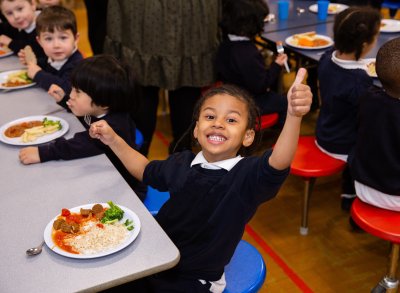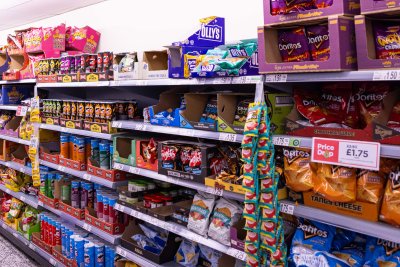The Government has stated its preference for 'strengthening' voluntary codes on food promotion to children [3], but the report by Sustain: The alliance for better food and farming explains why self-regulation will not work. Using a range of case studies from a number of policy areas, such as tobacco advertising and alcohol promotion, Sustain's report demonstrates how industry is unable, in a competitive market, to make voluntary approaches successful [4].
Charlie Powell, Sustain's Co-ordinator for the Children's Food Bill Campaign, stated, “The Government's plan that the tobacco and alcohol industries would self-regulate and stop marketing practices which encourage young people to consume their products has not worked. There is no reason to believe that Government's hope that voluntary self-regulation can stop food and drink firms targeting children with advertising and promotions for 'junk' foods will be any more successful.
In such highly competitive markets, voluntary approaches fail to protect children. Together with our wide coalition of 137 national supporting organisations, including many prominent medical and health organisations, professional associations and children's charities, we are calling upon the Government to introduce statutory measures to protect children's health from such commercial influences” [5].
The re-introduction of the Children's Food Bill also takes place on the same day that the British Medical Association publishes a major report which is expected to call for tough action to tackle the crisis in childhood obesity [6]. Repeated research demonstrates that food promotions to children influence their food preferences, purchase behaviour, preferences and consumption [7].
ALL PRESS ENQUIRIES SHOULD BE DIRECTED TO:
Charlie Powell
Tel: 0203 5596 777 (work); 07817 746786 (mobile); e-mail: charlie@sustainweb.org
Jeanette Longfield
Tel : 0203 5596 777 (work); jeanette@sustainweb.org
NOTES TO EDITORS
1.Mary Creagh is the Member of Parliament for Wakefield.
The Children's Food Bill aims to improve children's current and future health and prevent the many diseases and conditions, such as childhood obesity, which are linked to their unhealthy diets. It seeks to:
• protect children from the marketing of unhealthy food and drink products
• introduce mandatory nutrient and quality standards for all school meals
• prohibit the sale of unhealthy food and drink products from school vending machines
• ensure compulsory food education and related practical skills in the national curriculum
• place a duty on Government to promote healthy foods to children, such as fruit and vegetables
The Bill was previously supported by Debra Shipley MP, who stood down from Parliament in 2004 due to personal circumstances.
2. 'The Children's Food Bill – Why we need a new law, not more voluntary approaches', is published by Sustain: The alliance for better food and farming and is a report for the Government, MPs, civil servants, and all those who put children's health first. A summary of the report, will be distributed to every MP on Wednesday 22nd June.
The summary report is downloadable from www.sustainweb.org/CFB_MpReport.pdf
(20 colour pages and approximately 3Mb). [Click link at bottom of the page to download the report]
3. See the Government's Public Health White Paper: 'Choosing Health: making health choices easier', November 2004, Department of Health.
4. 'The Children's Food Bill – Why we need a new law, not more voluntary approaches' report draws upon case studies from tobacco advertising, alcohol promotion, the marketing of breastmilk substitutes, the use of pesticides and antibiotics in farming and the control of supermarket power to demonstrate the weakness and ineffectiveness of voluntary approaches.
5. A list of the 137 national organisations currently supporting Sustain's campaign for the Children's Food Bill to become law is available from: www.sustainweb.org/child_sup.asp
6. For more information about the BMA's report on Childhood Obesity, also published on Wednesday 22nd June, see: www.bma.org.uk
7. For example, in September 2003, the Food Standards Agency published a systematic 'Review of the
Research on the Effects of Food Promotion to Children', which was undertaken by experts from four British universities. The review concludes that the advertised diet is less healthy than the recommended one and that food promotion has a 'significant' effect on children's preferences, purchase behaviour and consumption. It is downloadable from: www.food.gov.uk/healthiereating/promotion/readreview/
8. Sustain: The alliance for better food and farming advocates food and agricultural policies and practices that enhance the health and welfare of people and animals, improve the working and living environment, enrich society and culture and promote equity. Sustain is a registered charity and has a membership of around 100 national public interest organisations. For more information, see: www.sustainweb.org
Children's Food Campaign: Campaigning for policy changes so that all children can easily eat sustainable and healthy food.








